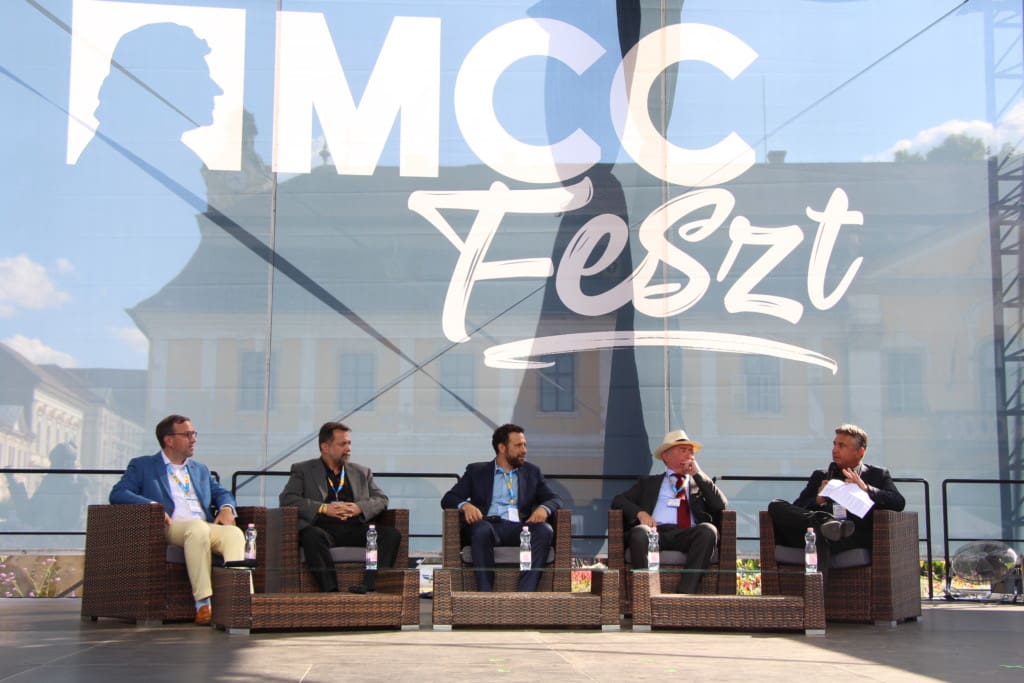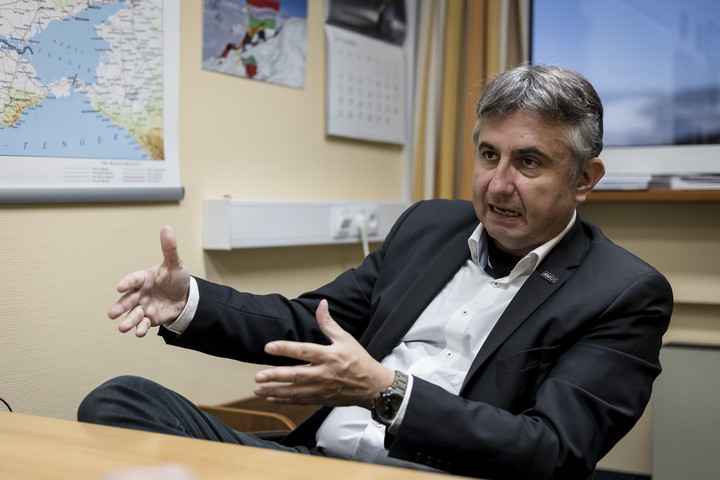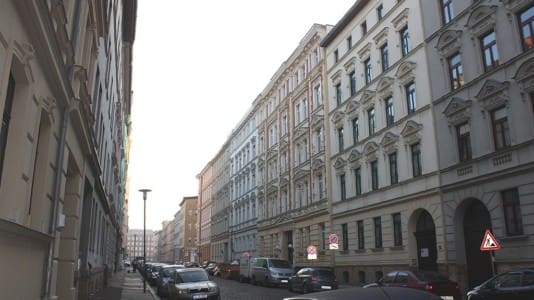Until recently, Poland and Hungary had a very special relationship in Europe, in particular since both have had conservative governments. Do you think that now, with the war in Ukraine and the very different positions of both countries, this relationship is broken as we could conclude from what we read and see in the media of both countries? Or is it that things are actually going on as before backstage?
The relationship between our two countries is definitely not broken in the way depicted by the media. There are misunderstandings and different perceptions of geopolitical dangers, but the basic worldview in Warsaw and Budapest is still very similar in terms of how we see the culture wars of the West and the future of the EU.
The two governments do diverge, indeed, on how to treat Russia and how to approach the war in Ukraine. This is in part because our history differs. In a way, Poland and Hungary are both right. Both are right, but both are looking at the war and the Russian aggression from a different angle.
In Hungary, too, the war in Ukraine is regarded as Russian aggression. The government has clearly said it is unprovoked aggression and that it will support Ukrainian sovereignty and territorial integrity. The question, however, is how we do this. What is possible, and what is not.
So, to sum up, yes, there is a break in the relations between Hungary and Poland, but the relationship is not broken.
There are actually many similarities in the history of Poland and Hungary. And there is this century-old brotherhood between the two countries. I am sure Hungary would not want to have the Russian army at its border, so it certainly does not want Ukraine to lose this war. But on the other side, we know Hungary has a conflict with the Ukrainian government concerning the Hungarian minority in Ukraine. Poland, too, has an unresolved conflict with Ukraine concerning the genocide perpetrated by Ukrainian nationalists in 1943-1944 and the Ukrainian authorities’ constant refusal to allow for the exhumation and proper burial of the victims’ remains. So why do you think Poland and Hungary diverge so much when dealing with the war in Ukraine?
The answer is very simple: Russia is a direct neighbor of Poland, because of the Kaliningrad enclave and also because of Belarus, as, for that matter, Belarus should be counted basically as Russia itself. So, Poland has a very long border with Russia, which means there is a direct threat against Poland while there is no such direct threat against Hungary.
In Hungary, we understand well why the Poles think that it is so important to counter Russia. For Hungary, however, the threat that people feel is coming from the south. Almost 200,000 people have tried to cross our southern border in just one year, and there were violent scenes on the streets of even Budapest, let alone the daily violent scenes at our southern border. For Hungary, threats do not come only from the east.

And yes, we do have problems with Ukraine. These are deeper problems than Poland’s problem with Ukraine because this is not only about history, it is about today and it is about the future of the Hungarian community in Ukraine.
The Polish minority in Ukraine speaks Ukrainian very well, as the two languages are very close. The Hungarian minority is 99 percent Hungarian-speaking. The question is not about whether children should learn Ukrainian well. Of course, they should. But forcing one language and basically shaming another is not a good policy. Our language is very, very different from Ukrainian, and our people have faced increasing restrictions on the use of their mother tongue since 2014.
So, this issue is very real and it is a source of daily friction. While the Volhynia massacre and the cemeteries are very important for Poland, the issue does not affect everyday life. For us, it is about everyday life. It is about whether it is okay to speak Hungarian to the clerk at the post office, and whether one can lose his or her job for simply being Hungarian.
The problems we have with Ukraine started before the full Russian invasion of 2022. The two things are not connected, and problems will not be over the day the war is over.
You have to understand that Hungary has a minority not only in Ukraine, but also in Slovakia, Romania and Serbia. If we compare Hungary’s 9.6-million population to the population of Poland, which is 38 million, it would be as if there were 8 million Poles living on the other side of Poland’s borders due to the border changes of the two world wars.
If the fate of 8 million Poles was at stake, then Poland would act much stronger too on the question of how those minorities are treated.
From our point of view, the new Ukrainian laws are unfortunately something that Romania, Slovakia and Serbia could follow one day if we let it happen. Language rights are our absolute red line, as we are talking about the fate of 20 percent of all Hungarian people.
I understand this may sound strange to a Polish audience, but this is how it is. One-third of the Hungarian people found themselves outside Hungary after World War I, and again after World War II. This is something that is still very alive in the minds of Hungarians. From the original 3.5 million, only 2 million are left in the neighboring countries today.
It is important to underline that the Hungarian community in Ukraine was not heading in any way toward separatism, although it has wrongly been accused of such things by some. That is not to say that we are without fault in this. Both the Hungarian minority and Hungary could have been more flexible and more reassuring toward Ukraine. We did not fully understand their trauma after 2014, and they had no clue about our trauma.
You were just referring to the Treaty of Trianon, which is indeed a big trauma for Hungarians. How would you compare the influence of Trianon on Hungary’s foreign policy today to the influence of the Poles’ past experience of Russian occupation on their foreign policy today?
In my view, Trianon for Hungarians is what the partitioning of Poland at the end of the 18th century was to Poles. I realize many of our neighbors would be offended by such a description, but this is exactly how we see things in Hungary, and how Hungarian minorities see it.
This does not mean that we do not accept our current borders. There is just no questioning of the borders on Hungary’s part, except for a small extremist opposition party.
But while we do not see it as a question of borders, the general feeling in Hungary still is that our country has been partitioned by the great powers and by our neighbors. For example, we are now speaking in Esztergom, and just on the other side of the Danube River, there is Esztergom’s sister town, which has a majority of Hungarians even though it lies in Slovakia. There are many other towns and villages inhabited by Hungarians that were simply cut into two. All this is daily life for millions of Hungarians today, not an issue of the past.
Trianon was not only a peace treaty, but it was a very strong aggression against the Hungarian people, with massacres of civilians, deportations, the demolition of statues and memorials, etc. For us, it is a terrible chain of events that is not understood anywhere outside Hungary. Beyond the many thousands killed, hundreds of thousands had to flee, and that happened again in 1945.
So for us, this is really something like the first and second partition of Poland was to the Polish people (before the third partition, which erased Poland from the map for over a century).
How does this trauma affect Hungary’s policy toward Ukraine? Is there some kind of cynicism, maybe? Like we don’t want to play by the rules of the great powers because we’ve lost so much in the past as a result of those great powers’ dirty games?
Indeed, many Hungarians see this situation as the great powers playing with nations in this region and playing with our differences.
Russia is clearly playing divide and rule. Moscow is trying to increase tensions between Ukraine and its neighbors as well as within certain countries in the region. But many believe in Hungary that the Western powers have also been playing divide and rule and that Ukraine will be left to suffer alone, just like we Hungarians were left alone in 1956.
Of course, I understand it was realpolitik by the U.S. and there is nothing to be offended about. But a lot of people in Hungary think that Ukraine is just being used by the Americans.
So, yes, there is cynicism in Hungary because of the way Hungary was treated in the last century by some of our neighbors and by the Western powers.

And what do you think of the Polish belief that the Russians will not be satisfied with just Ukraine, they will want to push further, maybe attacking the Baltic states, and later even Poland? Many Poles sincerely believe in this based on their historical experience with Russia.
I fully understand that this is the Polish feeling, but my opinion is somewhat different.
First of all, Russia is not capable of expanding further. Russia is simply not the former Russian Empire. It is a country that is getting weaker every year, comparatively to basically any other country in its neighborhood because it has experienced a higher population decline and its economy is stagnant.
Russia is dependent on hydrocarbons and the age of hydrocarbons will be over in 20-30 years. So to think today’s Russia is the same as yesterday’s imperial Russia is, in my view, quite wrong from a factual perspective.
And not only does present-day Russia lack the capacities of imperial Russia, but it does not have the will either. I believe that Putin is thinking of the so-called Russkiy mir, the Russian world, and the Russkiy mir in Putin’s view is “only” the Slavic republics of the former Soviet Union.
It is Belarus, Ukraine – or part of Ukraine, and maybe the northern part of Kazakhstan, i.e., these Slavic areas where the people are Russians or Russian speakers. All this is of course pure aggression, but also a pipe dream. Today, it is clear that Russia lacks the power even to do this.
Not only do I believe that Poland is beyond the capabilities of Russia, but I would say that even Western Ukraine is not a realistic target for Putin. It is mission impossible for a Russia weakened by corruption, mismanagement, bad leadership, and a demographic collapse.
That is not to say that Poland is fully safe; one must prepare for the worst. However, I believe that the Polish rearmament plan will make the Polish army a formidable force able to defend the country even if Russia manages to rearm itself after its enormous losses in Ukraine – something unlikely to happen.
Some say that, to some extent, the Russian invasion of Ukraine was provoked by the West’s policy toward that country, which made Russia believe Ukraine would fall into the West’s sphere of influence and perhaps become a NATO member someday. What do you make of such assertions?
My personal opinion is that the 2008 reluctant “invitation” of Ukraine to NATO was a mistake. Either you invite Ukraine to NATO and proceed very fast, giving membership so fast that Russia cannot react, or you should not have said the word “membership” at all. The solution that was chosen was really the worst of all options.
Russia is the aggressor. Russia is doing the killing. But the West played irresponsibly with Ukraine too back then and even in 2014. While the overwhelming responsibility lies with the one who pulled the trigger, some responsibility lies with those who promised defense without having the force to stop the one who has now pulled the trigger. We gave Ukraine a dream that they could be part of the European Union and NATO without providing them the necessary safety.
But could we have ensured Ukraine’s safety? How do you secure a country against a nuclear power of the size of Russia? How could you do that when there were millions of Ukrainian people who supported Russia and were against NATO? For sure, there was no easy solution for Ukraine, but in 2008, we chose the worst path of giving and not giving at the same time.
Despite what we have been saying, I believe there is also a lot in common between Poland’s and Hungary’s approach to the war in Ukraine. For example, Ukraine buys diesel oil from Hungary, which it uses to propel its tanks….
Yes, Hungary is giving a lot more to Ukraine than it is credited for. There are large quantities of diesel oil, natural gas, vehicles, humanitarian aid, but also certain types of non-lethal military aid.
Hungary is not delivering as much support to Ukraine as Poland, but in terms of percentage of GDP, we are in the middle range of EU countries in terms of the aid directed to Ukraine and the help to Ukrainian refugees.
We have also voted in favor of all the sanctions and condemnations of Russia. Most of our ties with Russia have been cut, except for energy and the Paks nuclear power plant. Hungary will soon get rid of all Russian military technology and fully switch to Western technology, and our army will become 100 percent NATO compatible.
What should the Ukrainians do to bring Hungary even more on their side?
The issue of the Hungarian minority and the issue of Hungarian symbols in Ukraine’s Transcarpathia oblast are extremely important to us. One such very important symbol was removed in 2022, and others have been attacked, and there has been serious harassment against the Hungarian minority by a local leader.
Of course, Ukraine is in a war. Ukrainians are dying by the hundreds every day, and it is therefore not an issue now for Ukraine. But we will have to deal with it after the war.
We can find compromises on different issues, but on some issues, compromise is not possible: and that is regarding Hungarian language use, education, and symbols. The rights that existed before, some even during the Soviet dictatorship, must be given back by a democratic Ukraine.
We can possibly find a solution with full reciprocity, as there is now a big Ukrainian community in Hungary. They can use the Ukrainian flag, we could open Ukrainian language schools for them and do more for the Ukrainians in Hungary. This could really be a win-win situation.
Attila Demkó is the author of several books published under the pen name David Autere, including “The Fury of the Tsar” published in English in 2019.






